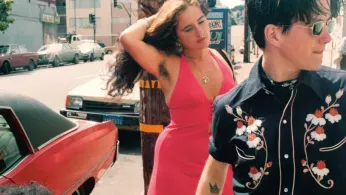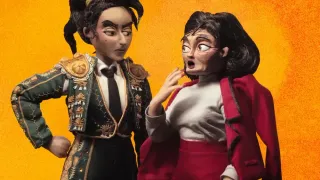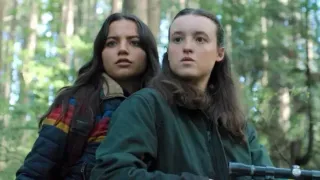
5 hours ago
Celebrating 25 Years of ‘Valencia’: Michelle Tea’s Iconic Lesbian Masterpiece Resonates Across Generations
READ TIME: 4 MIN.
This year marks the 25th anniversary of Michelle Tea’s ‘Valencia’, a work widely celebrated as one of the most iconic and transformative lesbian novels of the late 20th century. First published in 1999, ‘Valencia’ shattered literary conventions with its raw, unapologetic depiction of queer life in San Francisco, inviting readers into a world of wild parties, heartbreak, activism, and self-discovery. For a generation coming of age at the cusp of a new millennium—often in the margins of mainstream culture—Tea’s story became a lifeline and rallying cry for authenticity and queer visibility .
Michelle Tea, a poet, activist, and writer, emerged as a singular voice in American queer literature. With ‘Valencia’, she delivered a semi-autobiographical narrative that boldly centered lesbian and transgender people’s experiences at a time when such perspectives were rarely found in bookstores or on movie screens. The book’s protagonist, also named Michelle, navigates a city teeming with eccentric lovers, genderqueer icons, and chosen families—characters who refuse to hide their flaws or their joy .
The 25th anniversary edition, released by Serpent’s Tail Press, includes a new introduction and reflections on the cultural shifts that have occurred since the novel’s debut. Tea’s writing is as vital as ever, blending humor, vulnerability, and a keen eye for the absurdities of queer existence. “Tea is a voice of her generation, as the eye-roll-inducing saying goes,” notes a recent review, emphasizing how the characters—Petra, Willa, Iris, Spacegirl, and Fate—remain deeply relatable even as queer culture evolves .
In 2013, ‘Valencia’ was adapted into a collaborative feature film, directed by a collective of 21 queer filmmakers, each bringing their own vision to a chapter of the book. The film’s avant-garde style and commitment to authentic representation made it a festival favorite and a symbol of DIY queer artistry . It remains an essential watch for those exploring the intersections of lesbian identity, community, and creativity.
The film adaptation’s unique approach—assigning a different director and sometimes a different actor for each chapter—mirrored the diversity and fluidity of queer experience. This mosaic of perspectives resonated with audiences, highlighting both the universality and specificity of queer love and heartbreak. “Everyone could see themselves somewhere in ‘Valencia’,” says filmmaker and cast member Silas Howard in an interview reflecting on the film’s legacy .
The world has changed dramatically since ‘Valencia’ first appeared on shelves. LGBTQ+ rights have advanced in many regions, but new challenges have risen, including the resurgence of anti-LGBTQ+ legislation and increased attacks on transgender people in the United States and abroad . For many, ‘Valencia’ serves as both a reminder of how far queer communities have come and a call to keep fighting for liberation and inclusion.
The book’s enduring relevance is especially evident in its celebration of chosen family—a concept that has never felt more urgent. In a 2024 essay, one reader writes, “We, too, are embedded in a specific cultural moment: a renaissance of activity after the pandemic, which ushered in the queerest generation to date… Perhaps I am more primed to recognize this rarity, this specialness, because it all feels so fleeting. Fascism is on the rise in America, trans people are under attack, and alarm bells are already being sounded against gay marriage, which has been legal for as long as I can remember” .
The impact of ‘Valencia’ extends far beyond its pages or screen adaptation. The novel is credited with helping to launch the “queer lit renaissance” of the early 2000s, paving the way for writers and filmmakers to embrace messiness, desire, and authenticity in their storytelling. Its influence can be seen in the work of authors like Carmen Maria Machado and Torrey Peters, as well as in the programming choices of queer film festivals from San Francisco to Berlin .
Valencia’s depiction of lesbian and transgender relationships—unvarnished, complex, and deeply human—was groundbreaking at the time and remains rare even now. The book’s intersectional approach, foregrounding working-class struggles, sex work, and mental health, has made it a touchstone for queer people seeking mirrors for their lived realities .
Across the United States and internationally, queer communities are marking the 25th anniversary with book readings, panel discussions, and screenings of the film adaptation. Independent bookstores in cities like San Francisco, New York, and London have hosted events featuring Michelle Tea and invited audiences to share their own ‘Valencia’ stories .
In a recent online roundtable, LGBTQ+ activists and artists emphasized Valencia’s role in “building bridges” between generations. “Our stories are still urgent,” said poet and activist Kay Ulanday Barrett. “Valencia gave us permission to be complicated, to be loud, to love and to grieve without apology” .
As new challenges arise, and as more LGBTQ+ voices break into mainstream media, ‘Valencia’ continues to inspire artists and activists. Michelle Tea herself remains a prolific creator and community organizer, mentoring emerging queer writers and advocating for trans and nonbinary inclusion in publishing and the arts .
For many, the book’s 25th anniversary is not just a celebration of the past—it is a rallying cry for the future. “Valencia is a love letter to a community that refuses to disappear,” says Tea in a recent interview. “We deserve to see ourselves, in all our mess and glory, on the page and screen”
Twenty-five years on, ‘Valencia’ stands as a testament to the power of queer storytelling—messy, joyful, resilient, and unafraid. As the LGBTQ+ community continues to face new threats and seize new opportunities, the novel’s legacy endures: a beacon for those seeking connection, community, and the freedom to live authentically.






